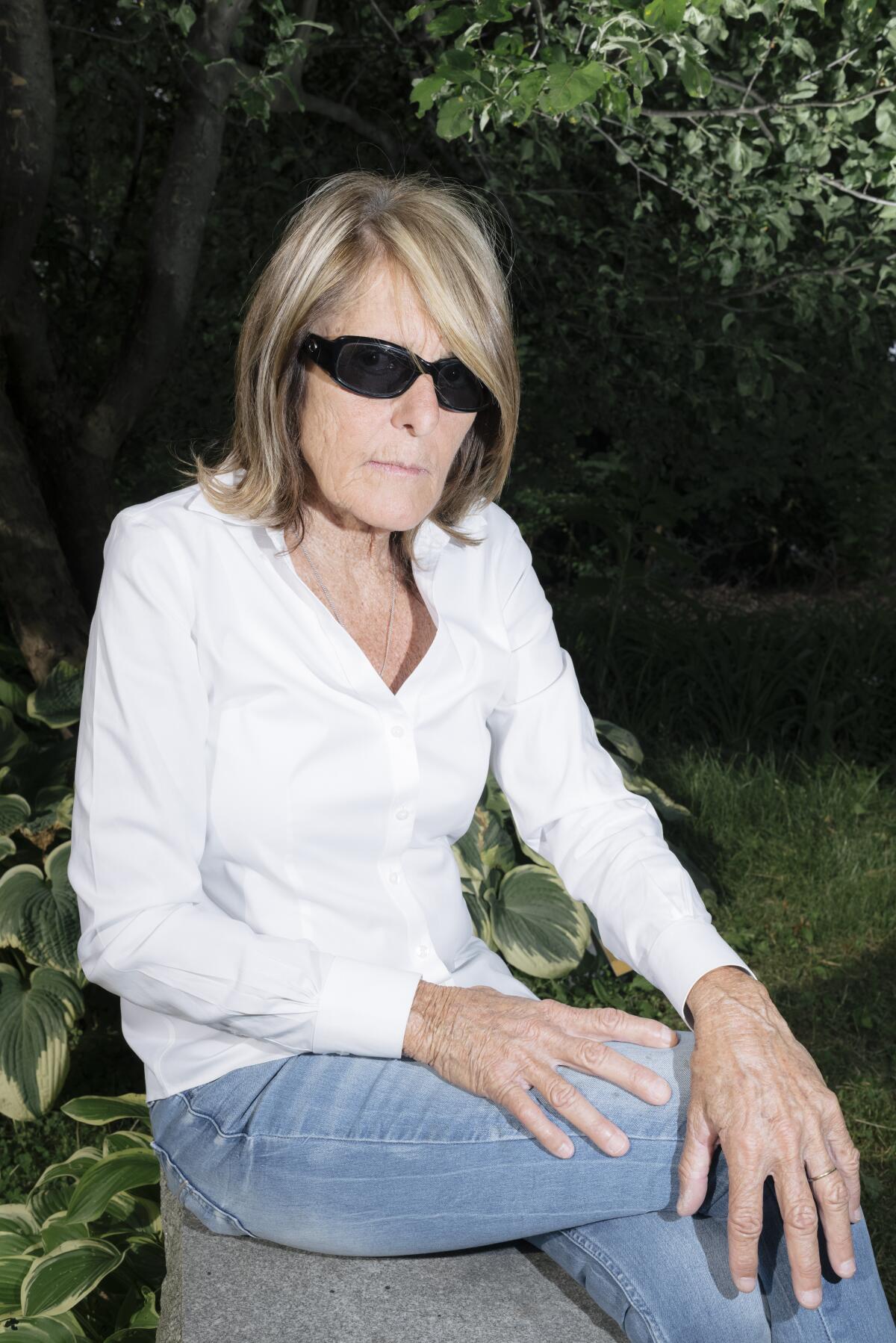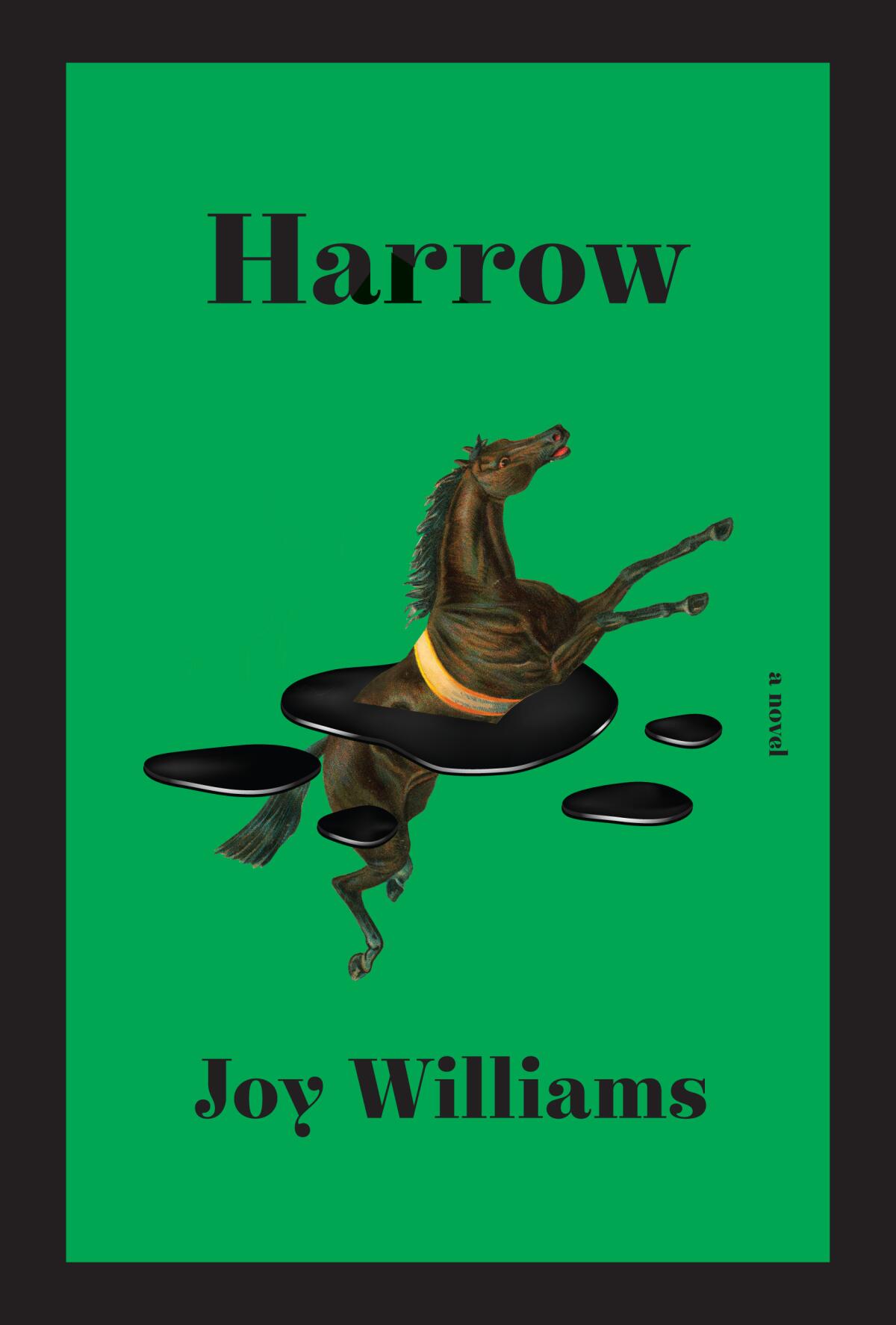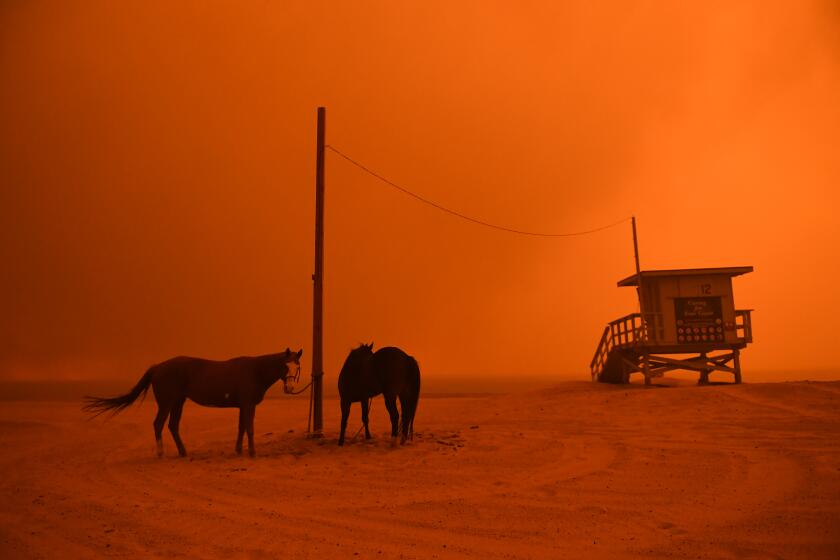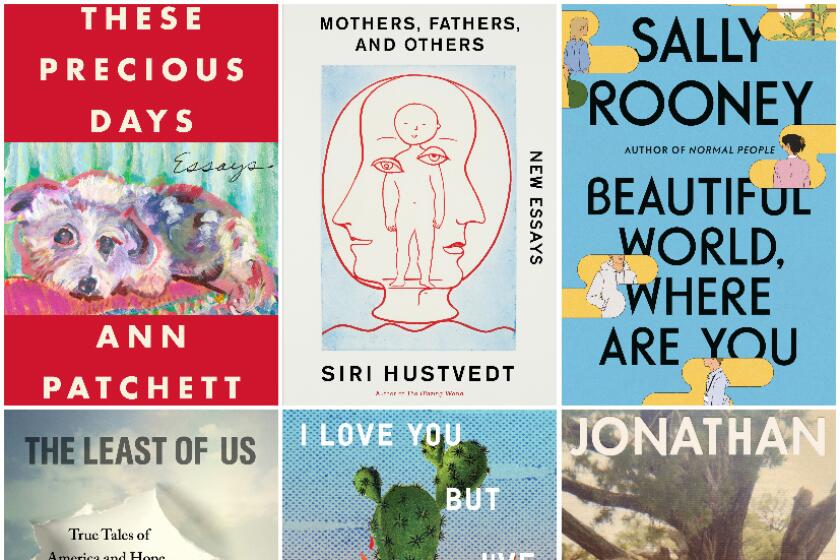Review: Joy Williams’ first novel in decades is an astonishing end-times parable

- Share via
On the Shelf
Harrow
By Joy Williams
Knopf: 224 pages, $26
If you buy books linked on our site, The Times may earn a commission from Bookshop.org, whose fees support independent bookstores.
Joy Williams once insisted that in America, literature must “absorb” our collective experience, “its heat, the recklessness and ruthlessness, the grotesqueries and cruelties. We must reflect the sprawl and smallness of America, its greedy optimism and dangerous sentimentality.” It’s not hard to see, between the lines of that aesthetic, the ethos of “Harrow,” her first novel since “The Quick and the Dead,” a finalist for the 2000 Pulitzer Prize.
“Harrow” unfolds on a ruined continent where environmental devastation has changed everything but also nothing; the zoos may “have been washed away” and the coasts flooded, yet “[p]retty much everything is up and running again. The amusement industry has heroically reestablished itself. Disney World has rebooted and is going strong.” Williams’ tone is caustic and discomfiting; it brings to mind the moment in which we are living, when matters of science and public health are regularly ridiculed or redirected in favor of political or economic platitudes.
At the same time, her vision is too capacious for “Harrow” to be read so narrowly. “Denial is now an art,” she asserts, “a social grace, a survival tool, as is apathy which has become a sign of refinement.” Elsewhere she observes, “We don’t have the words or the words we have are the wrong ones,” signaling both a necessary point of reference and a state of being.
“Harrow” is a short novel but a complex one. It revolves around a young woman named Khristen, whose mother calls her Lamb. “My mother believed,” the character explains in the opening paragraph, “that I had died as an infant but had then come back to the life we shared. As I grew, her intention and need was to put me in touch with where I had been when I was dead, what I remembered of it and what I had learned. She believed I was destined for something extraordinary.”
Lydia Millet, whose latest novel, “A Children’s Bible,” tackled climate change, reads new fiction on climate and argues against calling it a genre.
Here, Williams introduces a key component of her narrative: the yearning for transcendence in a world of “diminishing fortunes.” How, though, is transcendence possible in this world we have made? The tension sits at the center of the novel, as it does in much of Williams’ previous work. I think of “Ill Nature,” her 2001 collection of environmental essays “meant to annoy and trouble and polarize,” or the short story “Charity,” in which a car veers off the road after a young boy tries to take control of the steering wheel.
That scene is echoed late in “Harrow,” when a disaffected 10-year-old named Jeffrey makes a similar attempt. One minute, he is listening to his mother admonish him: “Jeffrey,” she says, “don’t play with your thoughts.” The next, he has wrenched the wheel and she is screaming, “and struggling with him, quite naturally lost control of the vehicle which rolled and rolled as though it were a perfect orb designed to roll forever before it cast him out to stand alone on a dark road …” The implication is that chaos is both our invention and our destiny, which means there can be no solace or forgiveness for our collusion with it. This is the source of Williams’ fierce and unrelenting anger, and it invests “Harrow” with a potent moral weight.

Such a sensibility emerges most vividly at the decrepit lakeside resort where Khristen meets Jeffrey: a kind of staging ground for elderly would-be ecoterrorists willing to sacrifice themselves so that the world might live. The irony — in a novel full of them — is that it’s already too late, not only for civilization, which has grown too jaded to pay attention, but also for these self-proclaimed saviors, most of whom are too infirm to act.
Williams is at her most bleakly humorous in these pages. “The old dear stories of possibility,” she writes. “No one wanted them anymore, but nothing had replaced them.” And yet, as the novel progresses, we understand that this is not exactly true. It’s not that the stories are gone, but that they’ve been commodified. Even the blades of windmills bear advertisements and come-ons. “[T]hey gave a tax break to households with guns,” Jeffrey tells Khristen. “Now no one pays taxes because everyone has guns.” Absurd? Yes, but also utterly believable. “Harrow” is a piece of writing in the vein of Samuel Beckett or Franz Kafka, its humor weaponized by rage.
The author has been everywhere, in life and fiction. “A Children’s Bible” passionately fuses the two: “You’ve gotta be Chicken Little sooner or later.”
Williams makes all this explicit in the closing section of the novel when Khristen reconnects with Jeffrey, who has always been a legal savant and is now a judge in a surreal courtroom that recalls Kafka’s parable “Before the Law.” It’s a subtle homage, framed by Jeffrey’s reference to a different Kafka story, and it gives “Harrow” a double vision that only heightens its authority.
As with Kafka’s implacable gatekeeper, Jeffrey’s primary responsibility is to keep penitents at bay. Yet he can’t help but feel for these lost souls, these defendants, even if there’s nothing he can do. “For woe if they suspected,” he imagines, “that they were no more than prisoners, with no place on earth to nurture them now and only the space they momentarily occupied to call their own.” That something similar holds for him suggests the one true-faith note of this novel: that there is no difference between judge and penitent.
It’s a difficult conclusion but the only one available in a world where language and law both stand corrupted and everything is up for grabs. Even the title of the novel speaks to this slippage: is it “harrow” as verb, which means to pillage or to plunder, or “harrow” as noun, a cultivating tool? Both are applicable, and yet Williams leaves it open-ended, which reminds us again of our complicity.
“Words,” Jeffrey splutters to Khristen, “have enabled us to get no nearer to …” Then he trails off, stunned into silence by the inability of narrative to reckon with the world. It’s a ruthless moment of a kind that we have come to know. “Before the eyes can see, they must be incapable of tears,” Williams tells us — excavating, as she does throughout this magnificent and moving novel, the middle distance between silence and experience.
Sally Rooney, Anthony Doerr, Maggie Nelson, Richard Powers, Jonathan Franzen — the list goes on. Four critics on kicking off a big, bookish fall.
Ulin is a former book editor and book critic of The Times.
More to Read
Sign up for our Book Club newsletter
Get the latest news, events and more from the Los Angeles Times Book Club, and help us get L.A. reading and talking.
You may occasionally receive promotional content from the Los Angeles Times.









